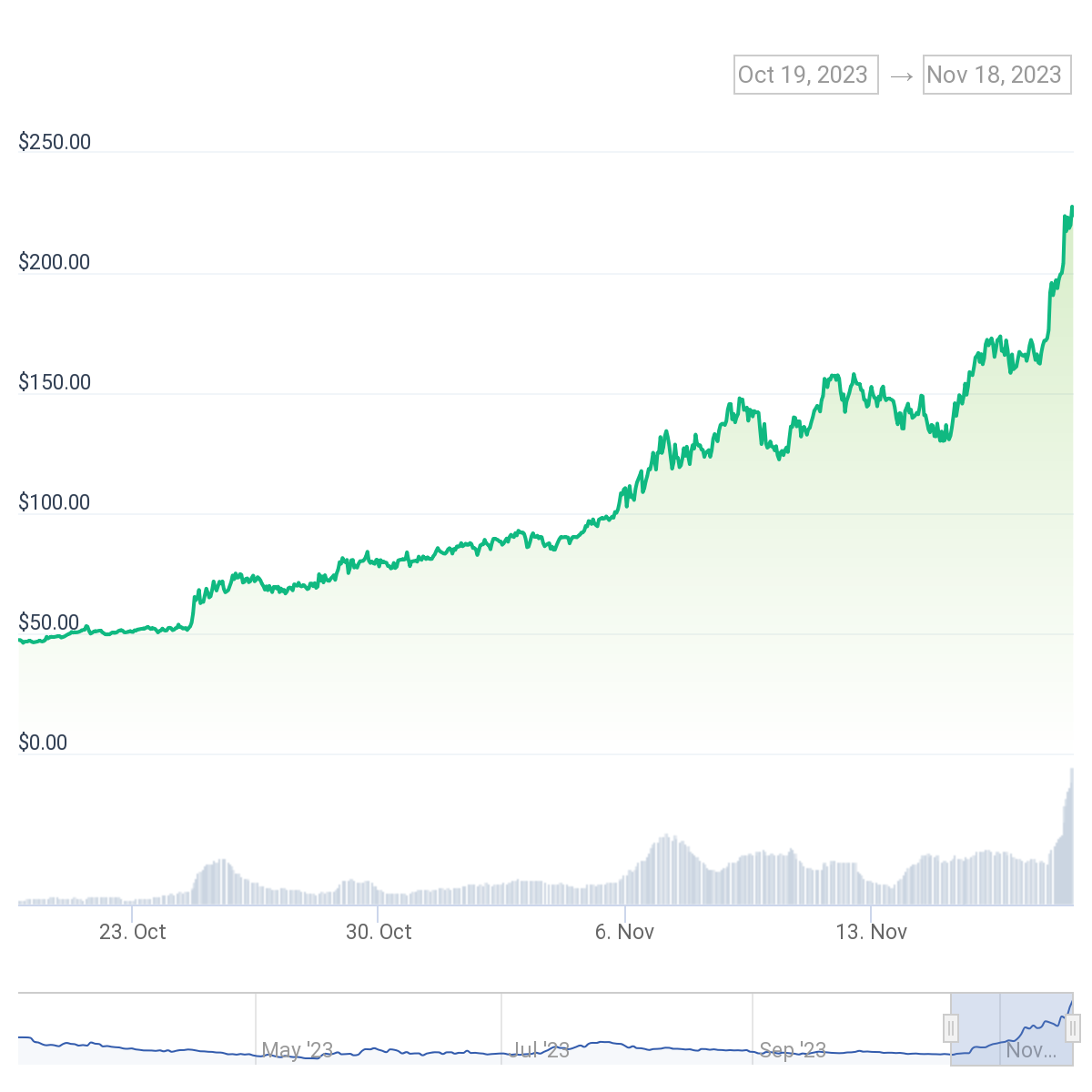Bittensor (TAO), an AI-centric cryptocurrency that promotes itself as a "peer-to-peer intelligence market," is making waves in the most trending segment of altcoins. Its price almost quintupled in less than 30 days on the euphoria around AI cryptocurrencies.
AI crypto Bittensor (TAO) jumps into top 50 largest coins
Today, Nov. 18, 2023, the price of TAO, the core native asset of the Bittensor platform, registered an all-time high at $239.35 on major spot exchanges. In the last 30 days, the TAO price added almost 400%. The rally accelerated yesterday: In 24 hours, the TAO price jumped by 37%.

As a result, on the CoinGecko tracker, Bittensor (TAO) became the largest AI cryptocurrency, surpassing Render Network (RNDR), the undisputed leader of the segment in the past moths.
However, on CoinMarketCap, Bittensor's (TAO) circulating supply and, therefore, its aggregated market capitalization, are still marked as "unverified." As such, the aggregator places the crypto in the third thousand of its ranking despite its 10-digit market cap.
Developed by Opentensor Foundation, the Bittensor (TAO) protocol emphasizes the necessity of decentralization in the segment of AI, opposing the centralized heavyweights of the emerging sphere.
Bittensor is the ecosystem and TAO is the mycelial network connecting humanity with the future of Artificial Intelligence
As an open-source AI protocol, Bittensor (TAO) was launched by former Google developer Jacob Steeves on Sept. 19, 2023.
OpenAI CEO being fired might be behind last TAO spike
In the last two months, Bittensor (TAO) went through a number of major announcements, including a spike in miners' performance, a new subnets launch, crucial large language models developments and so on.
As Bittensor (TAO) is an opposition to "regular" centralized AI corporations like OpenAI, Sam Altman being ousted yesterday might have contributed to the upsurge of the "decentralized AI" narrative.
Sam Altman, one of the key figureheads of the ongoing AI mania and the ChatGPT software, was surprisingly fired by the company's board due to being "not consistently candid in his communication."
 u.today
u.today